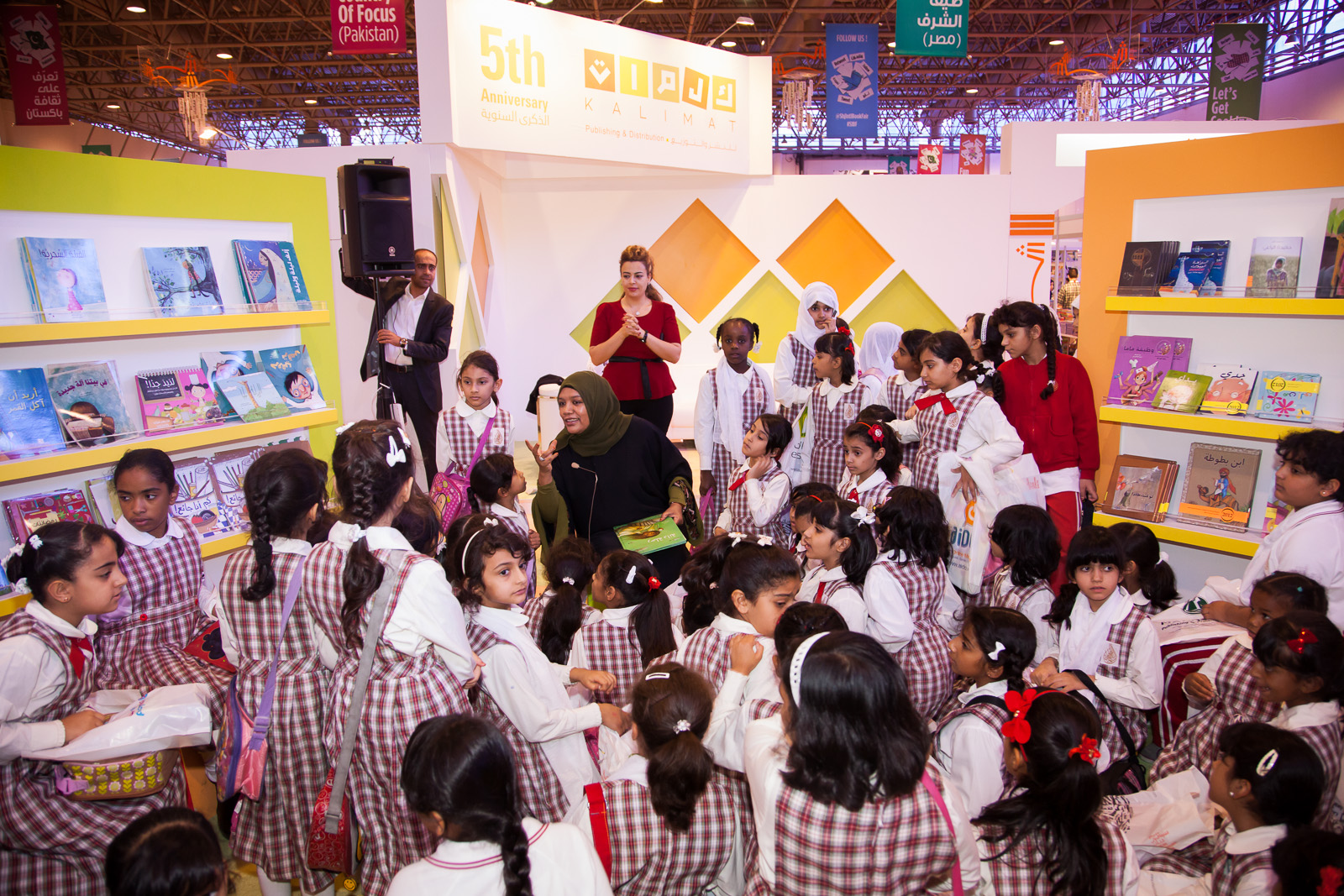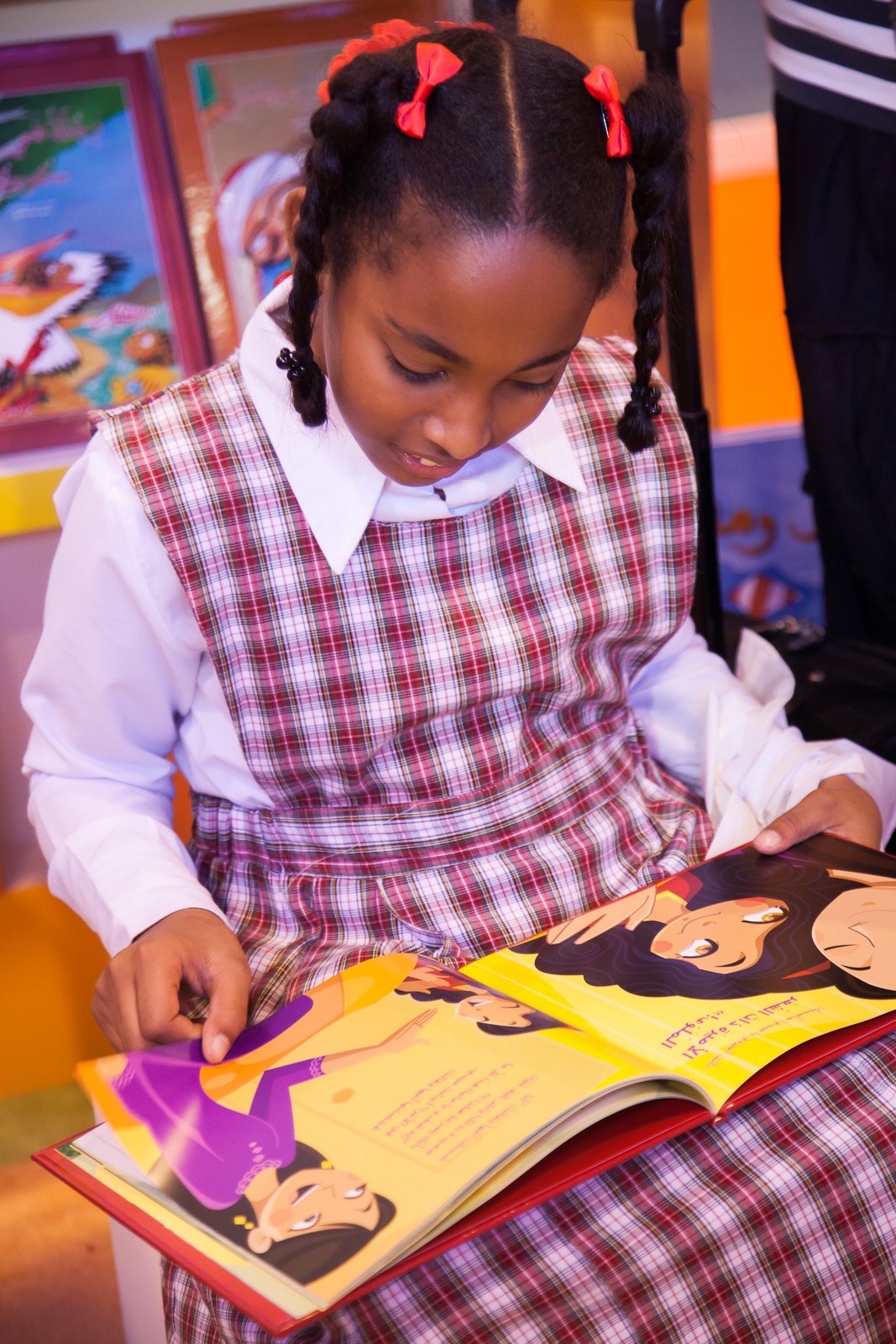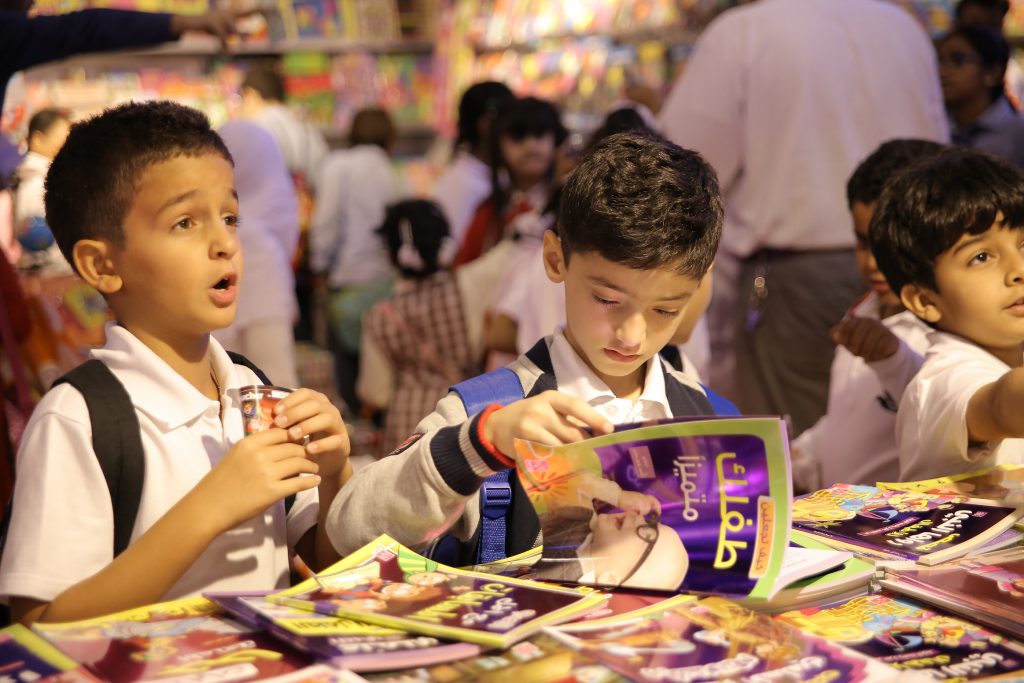
IPA: What do we know about the link between reading for pleasure and education/life achievement?
Bodour Al Qasimi: Reading for pleasure encourages children to expand their knowledge about the world, learn new vocabulary, and familiarize themselves with different themes, values and morals. There are numerous lessons to be learned through fictional literature as well as non-fiction, and the more one finds joy in reading, the more he or she will be inclined to retain information.
Further, the younger a child is when he or she begins to read, the more it helps in developing his or her brain and personality. Reading can be highly therapeutic for children of all ages and aids them in discovering different aspects of their characters. It can teach them how to handle difficult and uncomfortable life situations and to tackle daily obstacles, now and in the future. It also opens new doors and allows children to expand their imagination, and this in turn has been linked to educational achievement. One of my favourite quotes is from Einstein where he said: “If you want your children to be intelligent, read them fairy tales. If you want them to be more intelligent, read them more fairy tales.”
What about the link between reading to children and achievement?
Emilie Buchwald said that “children are made readers on the laps of their parents”. Reading aloud is one of the most important methods of language development. Studies have shown that reading to children every day puts them one year ahead of those who are not being read to, and in terms of being read aloud to at home, 8 out of 10 children say they highly enjoy it. Further, reading to a child enhances their ability to achieve things in school and later on in life. Being read to also exposes children to words and concepts not heard in every day conversation. The inflection in the reader’s voice helps children to understand the meanings of certain words and phrases, and helps build their imaginations regarding different story characters. In all, word-sound awareness is essential to a child’s ability to read and excel in life.
How is your country (the United Arab Emirates) trying to foster a reading culture?
The UAE is blessed with a large number of publishers and unique publishing initiatives which aim to build a culture of reading and to facilitate easy access to learning for children and adults alike. The Arab Children’s Book Publishers Forum brings publishers together to discuss and collaborate on issues related to children’s books in the Arab world.
Knowledge Without Borders, established in 2008, aims to increase knowledge among local communities and maintain Islamic and Arabic identity and language by providing each Emirati home with a 50-book library. This supports our initiatives to create a knowledge-based society.
The Etisalat Award for Children’s Literature was launched in 2009 to promote reading awareness among children. It is the biggest prize for Arab literature and grants 1 million AED annually to the best children’s publications in the region.
We also have two prominent book fairs in the region. This year, the Abu Dhabi International Book Fair will celebrate its 25th year and the Sharjah International Book Fair will be celebrating its 34th year. All these initiatives have positioned the UAE as a hub for knowledge and literature.

Children are now skilled users of smart devices. With so much content competing for children’s attention, are you worried that books will not be seen as “cool”?
No one can deny that there is an ongoing transition of reading from print to screen and that traditional books are challenged by digital devices. Here in the UAE, we have one of the most tech-savvy populations in the world, with 92% internet penetration and 72% smartphone penetration.
Personally, I believe technology will not replace reading, but rather enhance it. Reading on paper will always remain enjoyable (and easier on the eyes than reading electronically), so the printed book will never lose its value and importance. It is crucial that parents and teachers at schools join forces in cultivating and nurturing a love of reading among children and making reading a lifetime habit. Publishing houses also need to keep up with technological advances and create sufficient, rich and interactive content to meet children’s ever-changing demands and which draws their attention to printed books.
Around the world, there are many initiatives to promote early-years reading, and reading for pleasure. From your experience, which methods seem to be most effective?
Any initiative which contributes to promoting literacy and reading among children is useful, even if the reading strategies, parties involved and the scope of outreach vary.
I am most impressed with initiatives that help build positive relationships between parents/caregivers and children in order to develop confidence in youth and inspire a love of reading. I admire strategies that work across a range of agencies, including private, voluntary, independent and community partners, as well as educational stakeholders, in collaboration with families, to develop a joint approach in promoting young children’s love of reading.
An example of an organization that does great work in the field of reading promotion is Bookstart, a UK initiative that offers free books to children at two key ages before they start school in order to encourage and inspire a love of reading that will assist their growth and development and help families bond with one another. In addition to free books, the organization gives families reading recommendations, support and guidance, an opportunity to engage with other families at events held in libraries, children’s centres and other venues, and access to fun online storybooks, games and activities.

Some parents feel uncomfortable (or unconfident) about reading to their children. How do we overcome this?
Home is where the foundations for literacy and reading are built. Parents either manage to cultivate a love of reading in their children or they do not. If they don’t, it is because they may be unconvinced of the benefits of supporting their child’s literacy, or they do not have the adequate skills to do so.
It’s vital to involve parents in reading initiatives which have a strong focus on engagement in their children’s learning. Special sessions for parents should be held to highlight the importance of parents’ roles as their children’s first and greatest teachers, and to provide them with the skills and tips that enable them to fulfil this role.
Parents should be invited to schools as well as to reading sessions held during book events to learn how teachers, authors and volunteers read to their children. This will equip them the skills to read aloud to their children at home.

